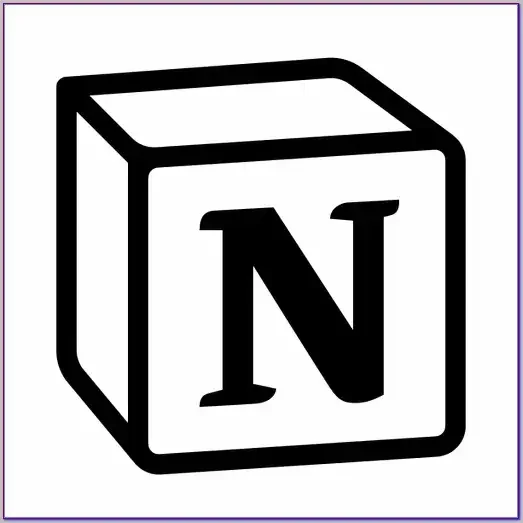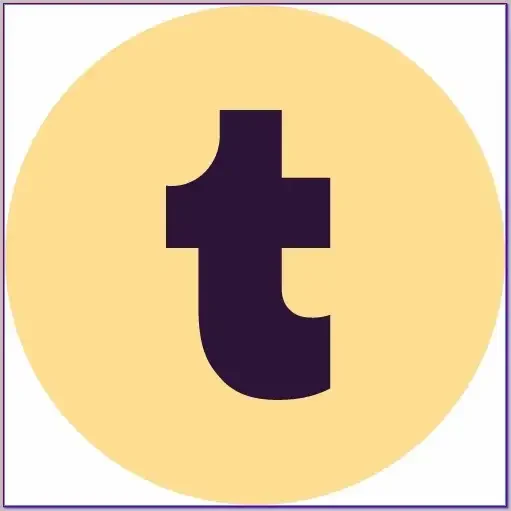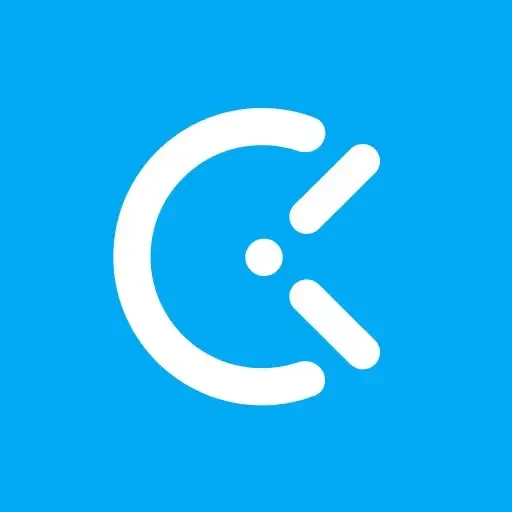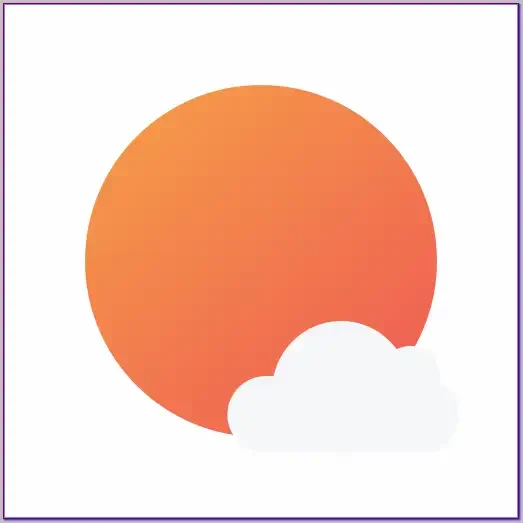Hello Friends! Are you a student juggling classes, assignments, and maybe a part-time job, feeling like there are never enough hours in the day? I know that struggle all too well. You’re searching for time management apps because you want to boost your productivity without burning out. In 2025, with everything from online lectures to group projects piling up, the right app can make a huge difference. I’ve tested a bunch of these tools myself, and I’m sharing the best ones here to help you get organised and stay on top of things. Let’s dive into this list of top time management apps for students, focused on what actually works for boosting productivity.

I remember when I was in university, I’d start the week with big plans, but by Wednesday, everything was a mess. Deadlines snuck up, and I’d pull all-nighters just to catch up. That’s when I started using time management apps, and it changed how I handled my workload. These apps aren’t magic, but they help you track tasks, set reminders, and even block distractions. If you’re a student looking to get more done in less time, stick around. By the end, you’ll have solid options to try, plus tips to make them work for you.
Why Students Need Time Management Apps in 2025
Let’s keep it simple: school life’s busier than ever. With hybrid classes, extracurriculars, and social stuff, it’s easy to drop the ball. Time management apps help by breaking down your day into manageable chunks, reminding you of due dates, and tracking how you spend your hours. They’re great for boosting productivity because they turn chaos into a plan. Think about it – instead of forgetting an essay deadline, you get a ping on your phone. Or, rather than wasting time scrolling, an app blocks distractions so you focus on studying.
From what I’ve seen, students who use these apps report less stress and better grades. A buddy of mine, Raj, was failing two subjects last year. He picked up one of these time management apps and started logging his study sessions. Within a semester, he turned things around, graduating with honours. It’s not about working harder; it’s about working smarter. In 2025, with AI features popping up in many apps, they’re even better at suggesting schedules based on your habits.
Top 10 Time Management Apps for Students
Here’s the meat of it: my picks for the best time management apps tailored for students. I chose these based on ease of use, features for academic life, and real user feedback from 2025 reviews. Each one gets a detailed rundown, including how it fits into student routines, pricing in dollars, and where to download. I’ll throw in examples and tips too, like we’re chatting over coffee.
1. Todoist: The Go-To for Task Tracking

Todoist tops my list of time management apps because it’s straightforward and powerful for students. This app lets you create to-do lists, set priorities, and track progress across devices. It’s perfect if you’re overwhelmed by assignments – just dump everything in and sort it out.
Key features include:
- Recurring tasks: Set up daily study reminders or weekly review sessions.
- Labels and priorities: Tag tasks as “high-priority” for exams or “low” for reading.
- Integrations: Syncs with Google Calendar or email for seamless workflow.
- Karma system: Gamifies your productivity, earning points for completed tasks.
- AI assistant: In 2025 updates, it suggests task breakdowns based on your history.
How it helps students boost productivity: Imagine breaking a big project into small steps. Todoist shows what’s due today, so you avoid last-minute rushes. It’s great for group work too – share lists with classmates.
Pricing: Free version covers basics; Premium is $4 per month or $36 per year, unlocking reminders and themes.
Download: Get it from the Todoist website or app stores.
Example: My friend Sara used Todoist during her final year. She had essays, labs, and a thesis. By labelling tasks by subject, she stayed on track and even had time for hobbies. Without it, she’d have crumbled under the pressure.
Tips for using Todoist:
- Start small: Add just your daily classes to build the habit.
- Use sub-tasks: For a research paper, list “outline,” “research,” and “write draft.”
- Bold highlight: Review your list every morning to set intentions.
Compared to others, Todoist beats Microsoft To Do in flexibility, but might feel overwhelming if you prefer super-simple interfaces.
2. Notion: All-in-One Workspace for Notes and Planning

If you’re after time management apps that double as a digital notebook, Notion is a beast. It’s like having a custom planner where you build databases for schedules, notes, and tasks. Students love it for organising everything in one spot.
Detailed features:
- Databases and templates: Create a study tracker or assignment board with due dates.
- Calendar view: See your week at a glance, with embedded to-dos.
- Collaboration: Share pages with study groups for real-time edits.
- AI tools: 2025 version includes auto-summaries for notes and task suggestions.
- Embed options: Link videos or docs right into your pages.
For student productivity, Notion shines in long-term planning. Track semesters, jot lecture notes, and set goals – all without switching apps.
Pricing: Free for personal use; the Plus plan at $10 per month adds unlimited blocks and guests.
Download: Head to Notion’s site or your app store.
Story time: I once helped a mate, Alex, set up Notion for his engineering courses. He built a dashboard with class schedules and linked resources. It cut his study time by 20% because everything was searchable. Before, he’d lose notes in random folders.
Pro tips:
- Use templates: Search for “student planner” to get started fast.
- Bullet points for habits: Track daily reading or exercise alongside tasks.
- Integrate with calendars: Pull in events to avoid double-booking.
In comparison, Notion outshines Evernote for customisation but requires a bit more setup time.
3. Google Calendar: Simple Scheduling Powerhouse

Google Calendar is one of those classic time management apps every student should have. It’s free, syncs everywhere, and keeps your schedule crystal clear. No frills, just reliable planning.
Features breakdown:
- Colour-coding: Assign colours to classes, study time, or breaks.
- Reminders and notifications: Get alerts via email or push.
- Shared calendars: Coordinate with friends for group study.
- Goals feature: Auto-schedules time for habits like “study maths.”
- 2025 updates: AI suggests optimal times based on your energy patterns.
It boosts productivity by visualising your day, helping you spot free slots for revision or rest.
Pricing: Completely free.
Download: Available on Google’s site or app stores.
Example: Think of Priya, a med student I know. She blocked out study sessions in Google Calendar, colour-coded by subject. It helped her balance clinicals and exams without overlap. She says it’s why she aced her boards.
Tips:
- Set recurring events: For weekly lectures or gym time.
- Bold: Use descriptions for task details, like “Read chapter 5.”
- Add locations: For on-campus events.
Compared to MyStudyLife, Google Calendar is more general but integrates better with other Google tools.
4. MyStudyLife: Tailored for Academic Life

MyStudyLife stands out among time management apps because it’s built specifically for students. It combines a planner, task list, and exam tracker in one.
Key elements:
- Class schedule: Input timetables with rotations.
- Task manager: Assign homework to specific classes.
- Exam reminders: Countdowns to test dates.
- Cloud sync: Access from phone, tablet, or web.
- Offline mode: Works without internet for on-the-go planning.
Perfect for boosting productivity in school settings, as it focuses on academic cycles.
Pricing: Free, with no premium upsells.
Download: Check MyStudyLife’s website or stores.
A quick story: My cousin used MyStudyLife in high school. With rotating classes, he was always confused. The app sorted his schedule, and he started finishing homework early. It even helped with revision plans.
Tips:
- Link tasks to classes: See what’s due per subject.
- List: Weekly review – check off completed items.
- Use notifications wisely: Only for critical deadlines.
Vs. Todoist: MyStudyLife is more school-focused, while Todoist handles life tasks better.
5. Evernote: Note-Taking Meets Time Management

Evernote is a solid pick for time management apps if you mix notes with planning. Capture ideas, scan docs, and set reminders all in one.
Features:
- Note organisation: Tags and notebooks for subjects.
- Task lists: Embed checklists with due dates.
- Web clipper: Save articles for research.
- Searchable scans: OCR for handwritten notes.
- 2025 AI: Auto-tags and summarises content.
Helps students by centralising info, reducing time lost searching for notes.
Pricing: Free basic; Personal $14.99/month for advanced search.
Download: Evernote.com or apps.
Example: I recall helping a friend during exams. She scanned all her notes into Evernote, set reminders for reviews, and searched keywords instantly. It saved hours of flipping through papers.
Tips:
- Create a “Master Notebook” for all classes.
- Highlight: Use templates for meeting notes or study plans.
- Sync with calendar apps.
Comparison: Evernote edges Notion in scanning, but lacks deep databases.
6. Toggl Track: Time Tracking for Efficiency

Toggl Track is key among time management apps for seeing where your time goes. Track study sessions and analyse patterns to improve.
Details:
- One-click timer: Start/stop for tasks.
- Reports: Weekly breakdowns of time spent.
- Pomodoro integration: Built-in focus timers.
- Idle detection: Pauses if you’re away.
- Project tracking: Categorise by subject.
Boosts productivity by highlighting time wasters, like too much social media.
Pricing: Free; Premium $9/user/month for teams.
Download: Toggl.com or stores.
Story: A student I know, Mike, tracked his days with Toggl. He realised he spent 3 hours daily on distractions. Cutting that boosted his grades.
Tips:
- Track everything for a week to baseline.
- Bullets: Set goals like “2 hours maths daily.”
- Review reports on Sundays.
Vs. RescueTime: Toggl is manual, RescueTime is automatic.
7. RescueTime: Automatic Habit Insights

RescueTime runs in the background as one of the smarter time management apps, logging app usage and suggesting improvements.
Features:
- Auto-tracking: Monitors time on sites/apps.
- FocusTime: Blocks distractions during sessions.
- Daily reports: Score your productivity.
- Goal setting: Track towards “4 hours study/day.”
- 2025 AI: Predicts burnout and adjusts alerts.
Great for students who forget to track, providing honest feedback.
Pricing: Free Lite; Premium $12/month.
Download: RescueTime.com or apps.
Example: My pal used RescueTime and found he wasted time on YouTube. Blocking it freed up study hours, leading to better focus.
Tips:
- Set custom categories: “Productive” for study apps.
- Bold: Aim for an 80% productive score.
- Weekly adjustments.
Comparison: More passive than Toggl, ideal for set-it-and-forget-it types.
8. Forest: Gamified Focus Builder

Forest turns focusing into a game in the world of time management apps. Plant virtual trees while studying – if you quit, the tree dies.
Features:
- Timer sessions: Set for 25-120 minutes.
- Tree planting: Grow a forest as you work.
- Stats tracking: See daily/weekly focus time.
- Whitelist: Allow certain apps during sessions.
- Real impact: Premium plants are actual trees.
Helps students build habits by making focus fun and visual.
Pricing: Free; Premium $3.99 one-time.
Download: Forestapp.cc or stores.
Story: I suggested Forest to a distracted friend. She planted trees for each study block, and her “forest” motivated her through finals.
Tips:
- Start with short sessions.
- List: Reward yourself after 5 trees.
- Group mode for study buddies.
Vs. Tide: Forest is more visual, Tide is audio-focused.
9. Clockify: Free Time Tracker for Budget Students

Clockify is a no-cost gem among time management apps, offering unlimited tracking for solo users.
Features:
- Timers and manual entry: Log time easily.
- Projects and clients: Treat subjects as projects.
- Reports and exports: PDF summaries for reviews.
- Kiosk mode: For shared devices.
- Integrations: With calendars and tasks.
Boosts productivity with detailed insights without spending.
Pricing: Free; Pro $9.99/month for advanced.
Download: Clockify.me or apps.
Example: A broke student I know used Clockify to bill freelance work alongside studies, balancing both effectively.
Tips:
- Tag time by activity.
- Highlight: Export reports for self-audits.
- Combine with calendars.
Comparison: Similar to Toggl, but fully free for the basics.
10. Sunsama: Daily Planning with AI

Sunsama blends calendar and tasks in time management apps, using AI to plan your day.
Features:
- Daily ritual: Pull tasks into a schedule.
- Time boxing: Assign slots to activities.
- Integrations: With email, Slack.
- Focus mode: Minimises distractions.
- Analytics: Weekly productivity overviews.
Ideal for students needing structured days.
Pricing: $20/month after trial.
Download: Sunsama.com or apps.
Story: My colleague’s kid used Sunsama for uni. The AI suggested balanced schedules, preventing overload.
Tips:
- End the day with reflection.
- Bullets: Prioritise 3 big tasks.
- Adjust for energy levels.
Vs. Motion: Sunsama is calmer. Motion is more dynamic.
Comparing Time Management Apps: Which Fits You?
To help choose, here’s a comparison table of these time management apps:
| App | Key Strength | Pricing (USD) | Best For | Integration Level |
|---|---|---|---|---|
| Todoist | Task prioritisation | Free/$4/mo | Busy students with lists | High |
| Notion | Custom workspaces | Free/$10/mo | Note-heavy planners | Medium |
| Google Cal | Simple scheduling | Free | Basic organisation | High |
| MyStudyLife | Academic focus | Free | School timetables | Low |
| Evernote | Note integration | Free/$14.99/mo | Research and scanning | Medium |
| Toggl Track | Manual tracking | Free/$9/mo | Time analysis | High |
| RescueTime | Auto insights | Free/$12/mo | Habit monitoring | Medium |
| Forest | Gamified focus | Free/$3.99 | Distraction-prone | Low |
| Clockify | Unlimited free tracking | Free/$9.99/mo | Budget users | High |
| Sunsama | AI daily planning | $20/mo | Structured routines | High |
My take: If you’re on a budget, start with Google Calendar or MyStudyLife. For advanced features, use Todoist or Notion. Compare based on your needs – do you want tracking (Toggl) or fun (Forest)?
Free Tools to Pair with Time Management Apps
Don’t stop at apps. Here are free tools to amp up productivity:
- Google Keep: Quick notes and reminders.
- Trello: Visual boards for projects.
- Focus@Will: Music for concentration. (free trial)
- Habitica: Gamify habits.
These integrate well with the apps above, like linking Trello cards to Todoist tasks.
FAQs on Time Management Apps for Students
Here are answers to common questions about time management apps:
1. What’s the best free time management app for beginners?
Google Calendar or MyStudyLife. They’re simple and cover basics without overwhelming you.
2. Can these apps help with procrastination?
Yes, especially Forest or RescueTime. They block distractions and track habits to build discipline.
3. Do I need premium versions?
Not always. Free tiers work for most students, but premium adds reminders and analytics worth $4-10/month if you rely on them.
4. How do I choose between Todoist and Notion?
Todoist for quick tasks; Notion if you want notes and databases combined.
5. Are these apps secure for student data?
Most use encryption. Check privacy policies – Google and Evernote are solid.
6. Can I use them offline?
Many, like Todoist and Evernote, have offline modes, syncing later.
7. What’s new in 2025 for these apps?
AI features like auto-scheduling in Sunsama and summaries in Notion.
8. How to get started?
Pick one app, add your schedule, and use it daily for a week.
Wrapping Up: Take Control with Time Management Apps
There you have it – the best time management apps for students in 2025 to boost your productivity. Whether it’s Todoist’s lists or Forest’s trees, the key is picking one that fits your style and sticking with it. Start small, track your wins, and adjust as needed. You’ll see less stress and more free time. Give one a try today; your future self will thank you.
Know More: For more student tips, check out daytalk.in.

